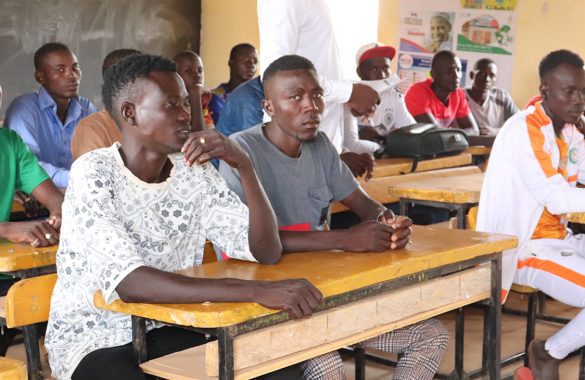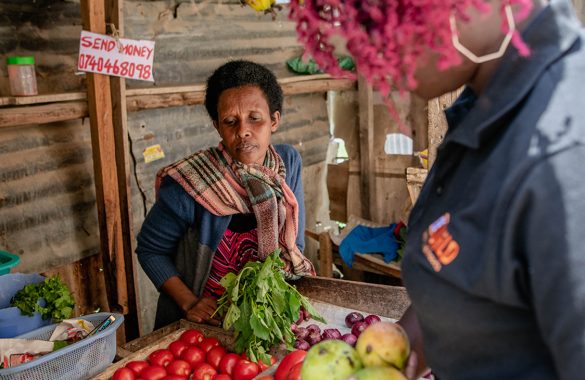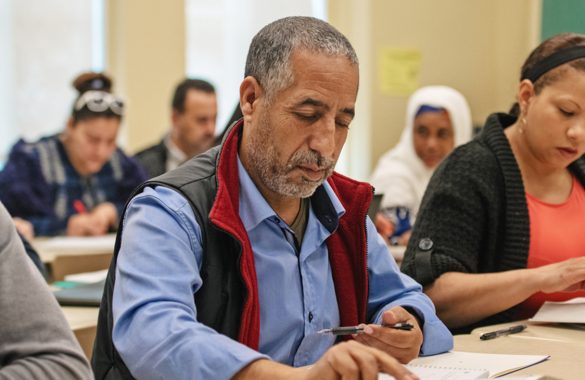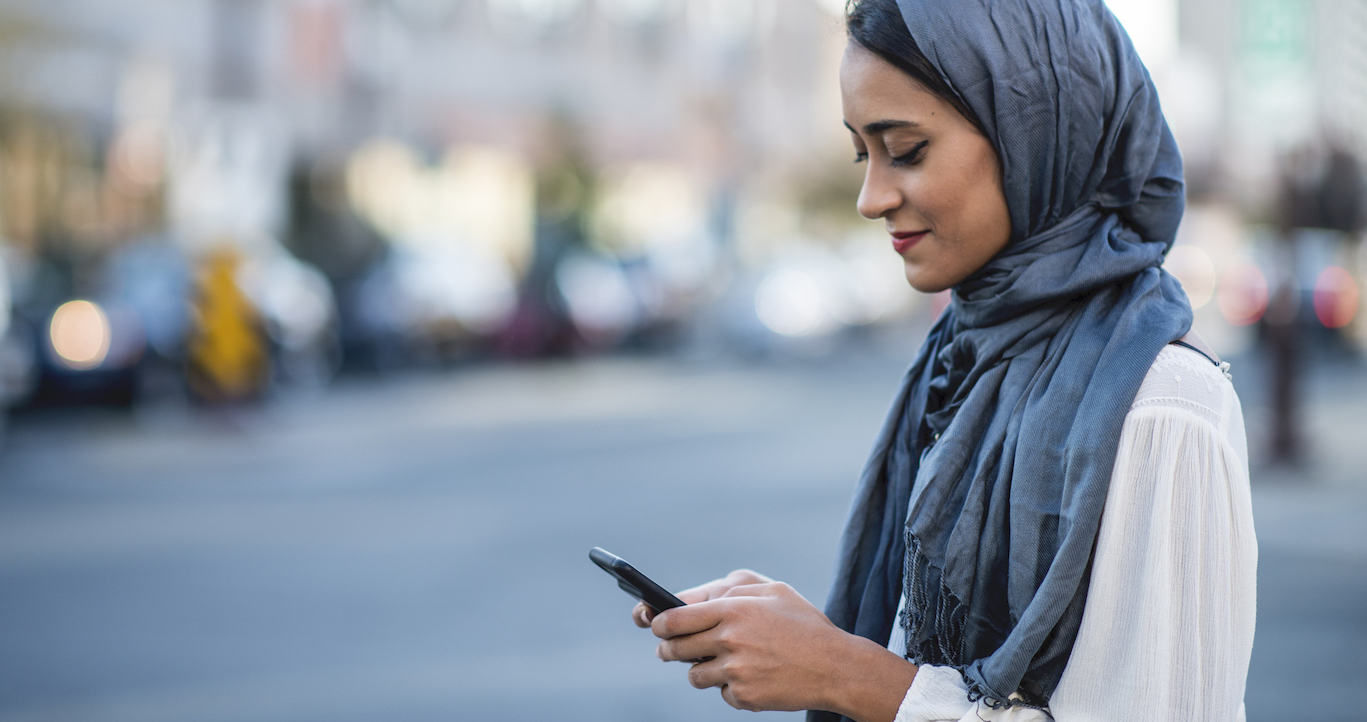
Surveys are an indispensable part of many research projects, whether the goal is developing new academic knowledge about specific populations or reaching out to a business or nonprofit’s clients for input and insight. But traditional survey methods can be expensive and time-consuming to implement, especially for resource-constrained research and nonprofit organizations.
Researchers at the Immigration Policy Lab wanted to address these challenges by developing a survey solution that would be budget-friendly, easy to deploy quickly, and reliable over time—even when respondents move or travel between countries and change their contact information.
We found that solution in WhatsApp, an application that can deliver surveys to respondents’ mobile phones in the form of automated messages that feel like an interactive chat conversation. In partnership with Mercy Corps and Lutheran Immigration and Refugee Service (LIRS), IPL developed a new survey infrastructure that uses the APIs for WhatsApp Business, Twilio (a cloud communications platform) and Google. Pilot tests of this approach with Mercy Corps and LIRS demonstrated that a 19-question survey can cost as little as $0.32 USD per completed survey, on average.
With more than 2 billion monthly users in 180 countries, WhatsApp is already familiar to many participants and accessible over WiFi or cellular data. And it can minimize respondent attrition, since WhatsApp numbers often stay the same even if they move to new places and change SIM cards.
Survey formats and data collection setup are highly customizable and adaptable for various use cases, whether this method be used by academics for research or by practitioners for client engagement. Once the system is set up, sending surveys to a large number of respondents and collecting their responses on a regular basis is an automated process and can be rapidly deployed at scale.
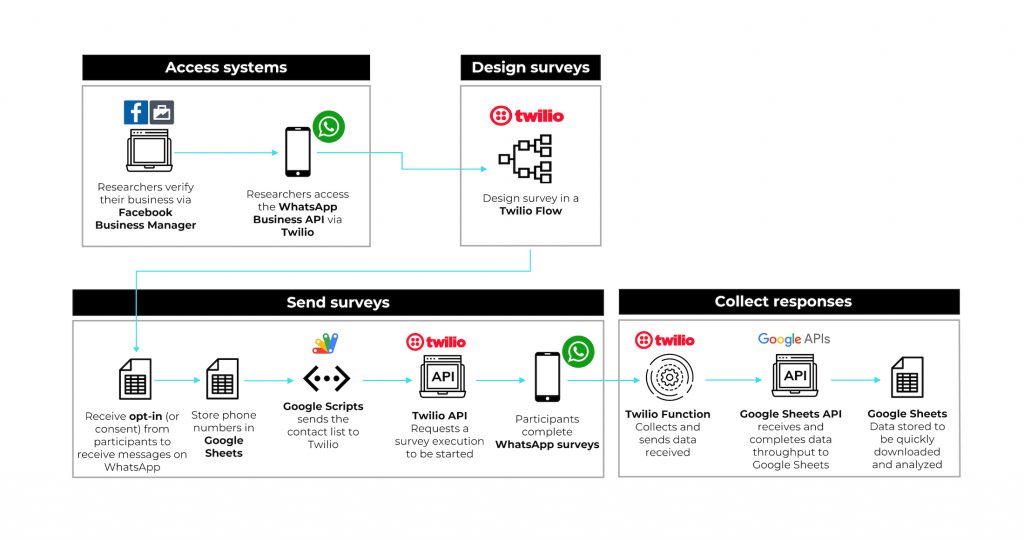 Many companies and organizations use this type of messaging to engage with clients, send reminders, and other types of alerts. Given these commercial applications, IPL wanted to make this survey method broadly accessible for researchers and nonprofit sectors.
Many companies and organizations use this type of messaging to engage with clients, send reminders, and other types of alerts. Given these commercial applications, IPL wanted to make this survey method broadly accessible for researchers and nonprofit sectors.
In the resources section below, you’ll find pre-written code and documentation to help users of all technical skill levels implement the WhatsApp survey method. These materials describe how to access the software platforms for this method, the various steps in the survey design process, and additional design considerations to think through before using this method for outreach.
Given that this project is in its early stages of pilot testing and implementation, we are excited to continue empirically studying this method and sharing results with the broader community. We also look forward to learning from peer researchers and practitioners about their experiences with the method. If you’d like to share feedback or survey projects you’ve conducted with this method, please use the form at the bottom of this page. (When using this approach, please cite our working paper.)
Resources
Ready to get started? Please look through the following resources to learn and implement the WhatsApp survey method:
- Comprehensive manual that guides you through system setup, survey design, and troubleshooting
- GitHub repository of code we’ve developed for use with this method
- Instructional videos that show you how to perform certain tasks during the process
- Webinar recording introducing the method and presenting case studies from IPL projects
- Webinar recording offering a demo and more technical details
Tutorials
Webinar Recording: Introducing the WhatsApp Survey Method
Webinar Recording: Technical Workshop
Share Your Survey Project
If you’ve used this survey method in your own work, we’d love to hear about the project. Please use the form below to share your experience.
[formidable id=9]
Funding for this project was provided by the UK Foreign, Commonwealth & Development Office, awarded through Innovations for Poverty Action’s Peace & Recovery Program.
TEAM
Jennifer Fei
Jens Hainmueller
Michael Hotard
Hannah Ingham
Saurabh Kanna
Duncan Lawrence
Beza Tesfaye
Jeremy Weinstein
Jessica Sadye Wolff
Vasco Yasenov
PARTNERS
Lutheran Immigration and Refugee Service
Mercy Corps
Slalom
FUNDERS
Charles Koch Foundation
Innovations for Poverty Action
UK Foreign, Commonwealth & Development Office
Stanford King Center on Global Development
KEY STATS
WhatsApp’s global reach: 2 billion monthly users in 180 countries
Average cost per 19-question completed survey in the United States: $0.32 USD
Response rate for WhatsApp surveys with Venezuelan refugees in Colombia: 75 percent

